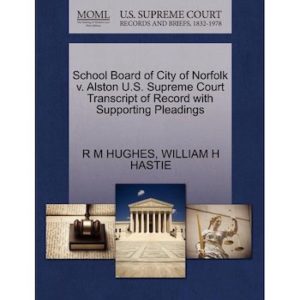
*On this date in 1940, Alston v. The School Board of Norfolk was decided. This was a suit instituted by Melvin O. Alston, a Black school teacher of Norfolk, Va., and the Norfolk Teachers' Association, an association composed of the Black school teachers of that city.
From the beginning of segregated public schooling in Norfolk, black teachers made less than their similarly trained white counterparts. By the late 1930s, the disparity in pay was pronounced, with black teachers earning roughly 56 to 72 percent of what their similarly skilled white colleagues made. Dissatisfaction with the situation was high. As trained professionals, African American teachers wanted the same level of respect and status that white teachers had in the community.
As a result, in 1937, with new pressure from the NAACP, the Norfolk Teachers Association (NTA), the city's all-black union, joined with its state-wide body, the Virginia Teachers Association (VTA), in a legal effort to challenge the discriminatory pay scale established by the City of Norfolk. Oliver Hill of the NAACP’s Legal Defense Fund was legal counsel against the School Board and the city's Superintendent of Schools. The purpose of the suit is to obtain a judgment on the defendants' policy, which fixes the salaries of Black teachers at a lower rate than that paid to white teachers.
Both teachers have equal qualifications and experience and perform the same duties and services. The sole basis of race and color was violative of the due process and equal protection clauses of the 14th amendment. The suit was to obtain an injunction restraining defendants from making any distinction on the ground of race or color in fixing the salaries of public school teachers in Norfolk.
The court issued a declaratory judgment that the school board was required to equalize salaries. The U. S. Supreme Court let the judgment stand, and, in effect, the Alston case became the key precedent for equalization lawsuits across the South.